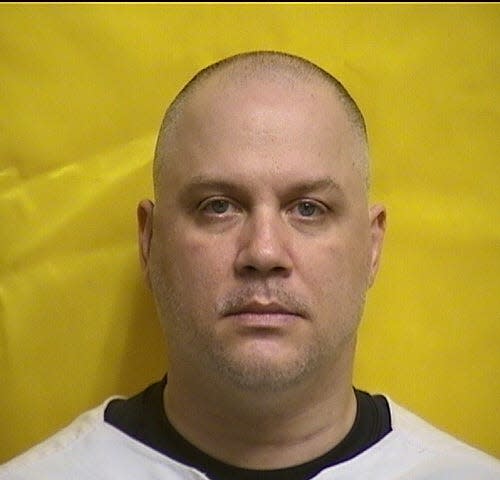Tyrone Noling finally gets chance to see Portage prosecutor's files in death penalty case

Tyrone Noling and his attorneys finally prevailed in Portage County Common Pleas Court. In July, Judge Becky Doherty granted access to the prosecution file, something Noling has pursued for nearly a decade. In 2014, a three-judge panel of the 11th District appeals court unanimously ordered “further proceedings” to determine whether prosecutors at trial withheld evidence favorable to Noling.
What took so long?
In recent years, Doherty, at the urging of the county prosecutor’s office, facilitated delay, requiring attorneys for Noling, led by the Ohio Innocence Project, to seek repeated help from the appeals court.
Doherty and the county prosecutor, Victor Vigluicci, defied the appellate judges, in essence. That resistance remains cautionary. The forensic document examiner still has not entered the file. The timing of that final step must be worked out between the Noling attorneys and prosecutors. Will prosecutors seek paths for further delay?

Noling certainly deserves the access he has sought. At one point, the appeals court argued that to deny access, as advocated by prosecutors, “would be fundamentally wrong and unjust.”
For nearly three decades, Noling has sat on death row for the 1990 killings of Cora and Bernhardt Hartig in Atwater Township. He remains there though the case against him has come apart in view of evidence that has surfaced since his conviction. He is innocent, in a word, a stance he has maintained from the start.
What might the file reveal? New evidence discovered in 2010 indicates that prosecutors may not have been fully forthcoming in sharing information with the defense at trial. Notably, the file may include a statement from a man saying that his foster brother confessed to the killings.
That foster brother, Dan Wilson, lived near the Hartigs. He later was convicted and executed for killing a woman. Imagine how the trial might have changed if the jury weighed the presence of such an alternative suspect.
Recall the state of the evidence today. The trial turned on the testimony of three accomplices in what the prosecution described as a robbery gone bad. One accomplice recanted his confession before the trial. The others did so later. Eventually, information surfaced about how those confessions were coerced through the sordid means of an investigator for the prosecution.
At one point, the youngest, 16 years old, asked the investigator: “Am I on your side, finally?”
No DNA or other physical evidence links Noling to the crime scene. His .25 caliber pistol did not match the murder weapon. Prosecutors claim Noling confessed to a jailhouse snitch, though such testimony rates as a leading cause of wrongful convictions. For his part, Noling passed a polygraph exam.
It matters, too, that the county prosecutor at the time, long before Vigliucci, engineered the wrongful convictions of Randy Resh and Bob Gondor for murder. The two spent 16 years in prison before establishing their innocence, the state paying nearly $5 million in compensation for its horrendous error.
No wonder the Portage County sheriff concluded after looking into whether Noling and the others were credible suspects: “It just didn’t fit.”
This is the context in which Noling sought access to the prosecution file, and Judge Doherty allowed the request to languish for years, much to the frustration of the appeals court.
In March 2022, the appeals court delivered a scathing account of her refusal to enforce its mandate, finding her ruling “without substantive justification.” It described the distinction she drew between her approval of funding for a forensic document examiner and her denial of actual access “both strange and unintelligible.”
Six months later, Doherty balked again at enforcing the mandate, erecting new barriers for Noling and his attorneys to clear, beyond the scope defined by the appeals court. In December, the appeals court issued an extraordinary entry that asked, in effect: Really? You’re going to persist?
Into this year, Doherty insisted on a difference between “full and complete access” and “analysis or testing of evidence,” even suggesting the defense somehow would “conduct experiments” and harm the files. She did so though the appeals court knows well how forensic document examiners work. They use instruments such as stereomicroscopes and wavelength filters.
The job requires more than the naked eye.
Finally, in June, the appeals court pressed the issue, concerned about the case remaining in an “untenable state of suspension.” It ordered Doherty to conduct a hearing, in which the prosecution would cross-examine the forensic document examiner, and then to issue a ruling — all within 60 days, a process that likely could have been fashioned long ago.
By the middle of last month, Doherty had complied. Tyrone Noling won an overdue victory. The real triumph will come when the state corrects its mistake and delivers justice to an innocent man.
Douglas was the Beacon Journal editorial page editor from 1999 to 2019. He can be reached at mddouglasmm@gmail.com.
This article originally appeared on Akron Beacon Journal: Tyrone Noling gets chance to view Portage prosecutor's files

